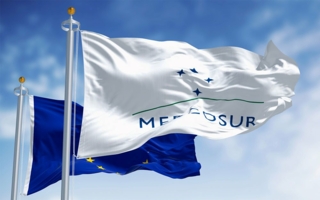17/07/2023 – European Parliament
Euratex’s Position on the Ecodesign Regulation
The European Parliament has approved its stance on the Ecodesign Regulation, which aims to enhance the environmental sustainability and circularity of products available in the EU market, including textiles.
Euratex (European Apparel and Textile Confederation), representing 160,000 European textile companies, has consistently emphasized that a successful legal framework requires an inclusive and feasible approach, adequate preparation time for businesses to adjust, and the provision of tailored support and a smooth transition for SMEs. Euratex strongly supports the European Parliament’s reinforcement of market surveillance provisions, which are crucial for ensuring a level playing field for EU companies in the Single Market.
While Euratex acknowledges the importance of expediting the green transition and appreciates the progress made on the legislation, it expresses regret over the Parliament's decision to target the textile industry within a framework legislation intended for all sectors.
Acknowledging the challenges faced by businesses in navigating various ongoing policies and legislative initiatives, Euratex values the European Parliament's efforts to ensure legislative consistency, as the lack thereof could result in additional costs and administrative burdens for companies. The inclusivity and transparency of the future Ecodesign Forum have been positively highlighted.
Euratex laments the European Parliament’s oversight in addressing the plea for legislative coherence on substances of concern and aligning the ESPR with existing chemical legislation to avoid overlapping or conflicting regulations and suggests that social sustainability aspects should be addressed within the framework of due diligence legislation.
Regarding the future Ecodesign requirements for textiles, Euratex emphasizes the need for reliable data, thorough analysis, and impact assessments as the basis for developing textile-specific Delegated Acts, in collaboration with relevant stakeholders.
As the ESPR trialogue negotiations between the European Parliament, the Council of the EU, and the European Commission progress in the autumn, Euratex continues to emphasize the guiding principle of “fit-for-purpose” rules and the balance between ambitious environmental objectives and the competitiveness of companies.
Furthermore, on Tuesday, July 11th, the European Parliament adopted its position on the Industrial Emissions Directive (IED) with 396 votes in favor, 102 against, and 131 abstentions. Euratex raises concerns regarding this text due to the inclusion of standalone finishing plants within the scope of the new IED. This creates inconsistencies with the recently finalized Textile BREF document (adopted in Seville by all parties), which regulates industrial emissions for both pretreatment and finishing plants. Standalone finishing companies, typically SMEs, now face challenges in complying with specifications that were originally designed for different and larger companies.




